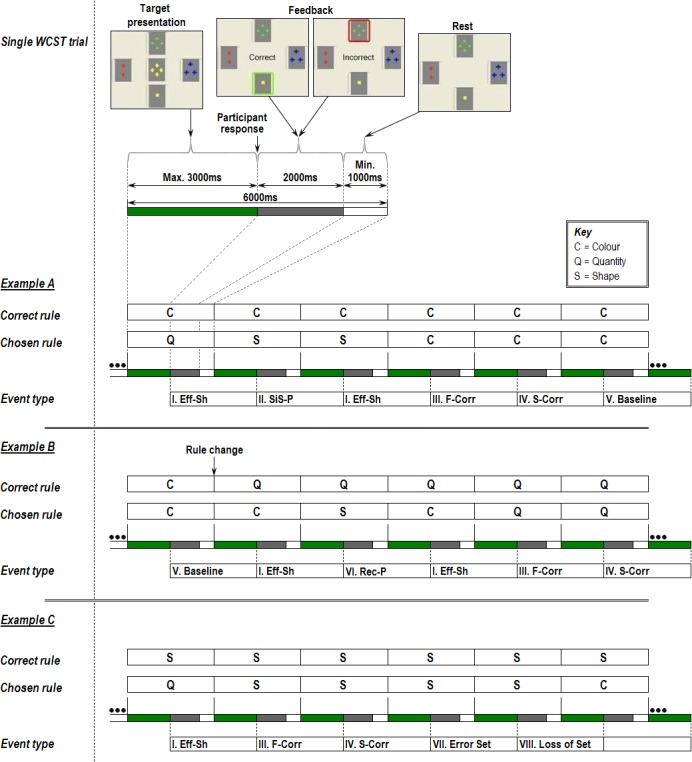Fig 1. Time course of a WCST trial and events of interest for behavioural and fMRI analysis.

Each example presents the current rule chosen by the program (‘correct rule’) with concurrent trial-by-trial participant responses (‘chosen rule’), illustrating different WCST ‘event types’. Note that for event-related fMRI analysis, each event is modelled as the period between two consecutive responses and the ‘event type’ is defined by the combination of the two responses. EXAMPLE A: I) Efficient Shifts (Eff-Sh) were when participants changed sorting rules following negative feedback to one that had not been previously tested. II) Stuck-in-set perseverations (SiS-P) occurred if the same sorting rule that was incorrect in the previous trial was applied in the subsequent trial. III) First correct sort (F-Corr) of a new set. IV) Second correct sort (S-Corr) follows first correct sort. V) fMRI baseline (Baseline) was designated as trials 3–8 of a string of 8 consecutive correct sorts. EXAMPLE B: VI) Recurrent perseverations (Rec-P) constituted shifts to another sorting rule following incorrect feedback, but to one that had been tested two trials previously and already fed back as incorrect. EXAMPLE C: VII) Error Set trials (Error Set) were correct sorts not included as baseline trials due to occurrence of ‘loss of set’ errors within that particular set. VIII) Loss of set (Loss of set) trials are shifts to a different rule following positive feedback.
